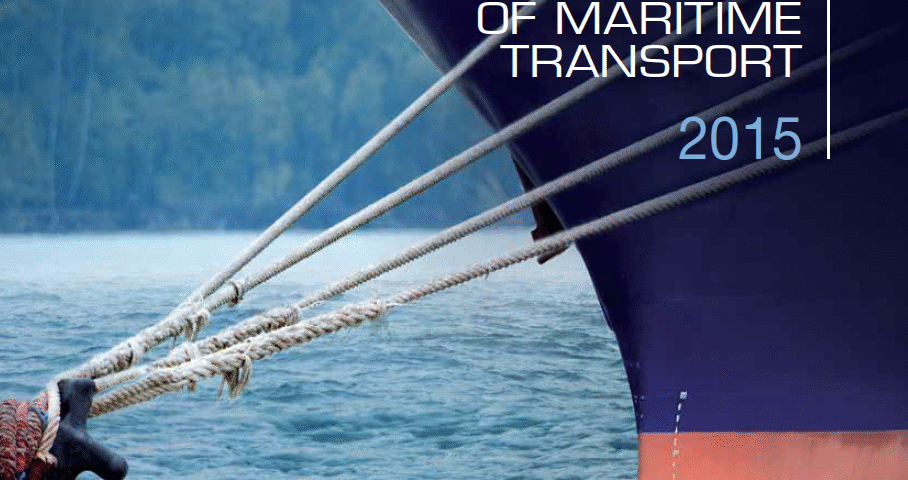 Maritime transport is the backbone of international trade and the global economy. Around 80 per cent of global trade by volume and over 70 per cent of global trade by value are carried by sea and are handled by ports worldwide. These shares are even higher in the case of most developing countries.
Maritime transport is the backbone of international trade and the global economy. Around 80 per cent of global trade by volume and over 70 per cent of global trade by value are carried by sea and are handled by ports worldwide. These shares are even higher in the case of most developing countries.
UNCTAD’s Review of Maritime Transport has since 1968 provided coverage of key developments affecting international seaborne trade, shipping, the world fleet, ports, freight markets, and transport-related regulatory and legal frameworks.
The year 2015 is a milestone for sustainable development. The international community has a unique opportunity to strengthen its commitment to sustainable development and consider how best to mainstream sustainability principles across all economic activities and sectors, including maritime transport. In this context, in addition to the review of key economic and legal developments, the present edition of the Review of Maritime Transport highlights some issues that are at the interface of maritime transport and sustainability
Chapter 4 is devoted exclusive to ports. As detailed in the Review, developing economies’ share of world container port throughput increased marginally to approximately 71,9 per cent. This continues the trend of a gradual rise in developing countries’ share of world container throughput. The economic, environmental and social challenges facing ports include growing and concentrated traffic volumes brought about by ever-increasing ship size; the cost of adaptation of port and port hinterland infrastructure measures; a changing marketplace as a result of increased alliances between shipping lines; national budget constraints limiting the possibilities of public funding for transport infrastructure; volatility in energy prices, the new energy landscape and the transition to alternative fuels; the entry into force of stricter sulphur limits; increasing societal and environmental pressure; and potential changes in shipping routes from new or enlarged international passage ways.
Read Chapter 5 of the UNCTAD Review of Maritime Transport 2015: Chapter 4: Ports
Download the entire Report: UNCTAD Review of Maritime Transport 2015











